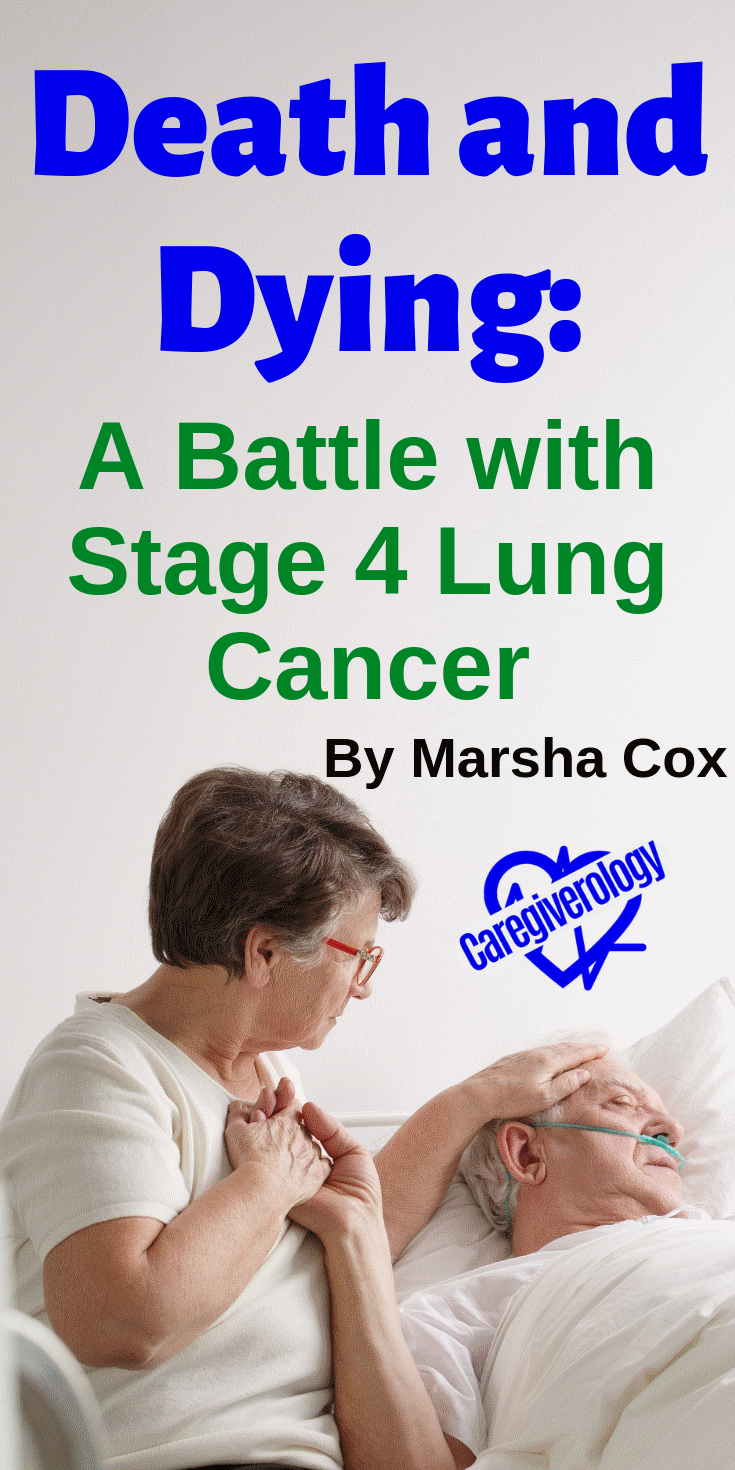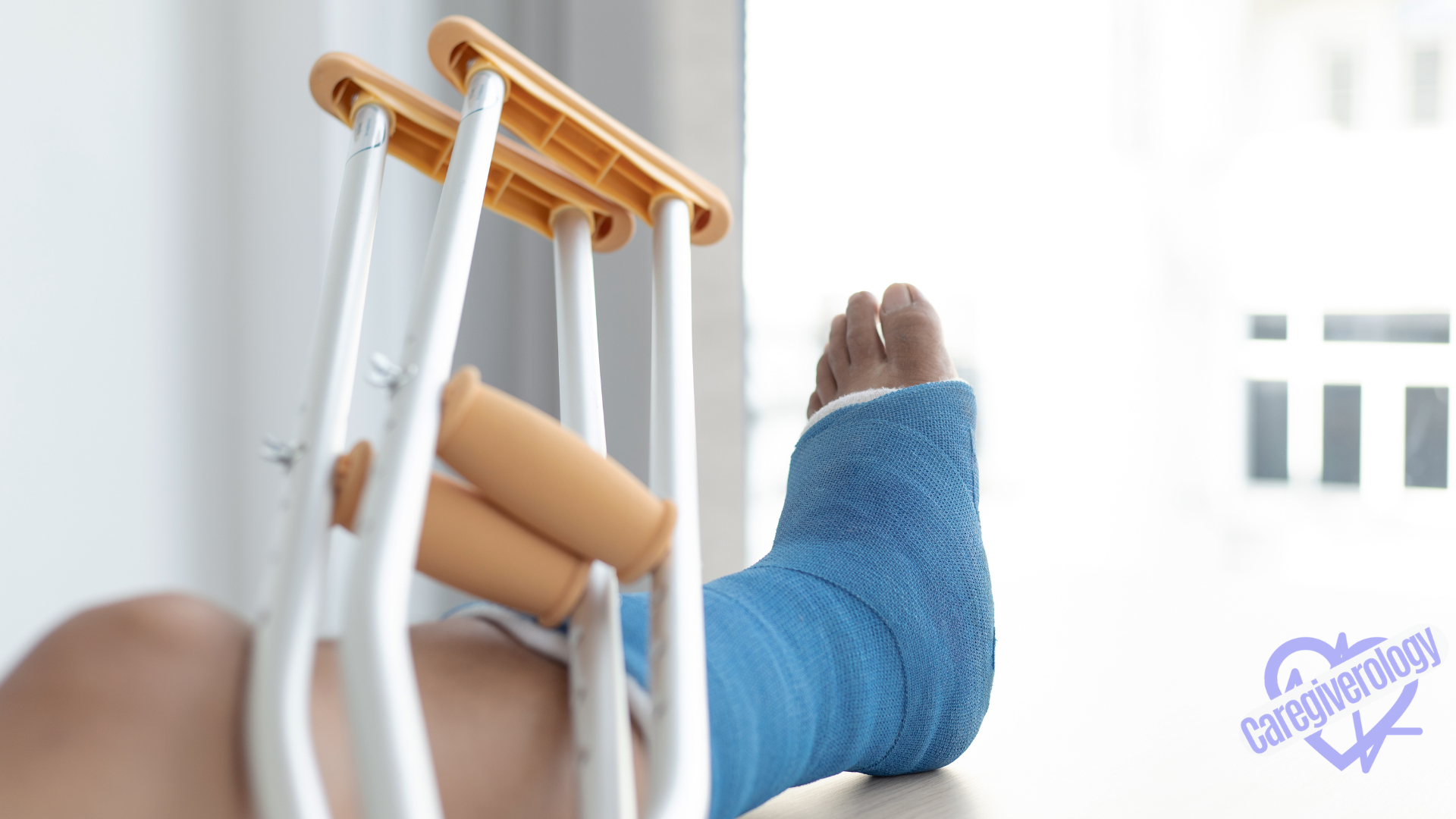Death and Dying: A Battle with Stage 4 Lung Cancer
Death and dying is something that all of us, including everyone we have ever known, will one day face. What are these experiences like? What can we do to better prepare ourselves for this inevitable fate? How will it affect our loved ones? As someone who has been through this process with my husband, I will shed some light on these questions.
One in 16 people in the United States will be diagnosed with lung cancer within their lifetime. Only about 19% of all people diagnosed with lung cancer will survive 5 years or more. So if you are caring for a loved one with cancer, just remember that the road is difficult and challenging. Sharing your love by helping them through this troubling time in their life is one of the greatest things you can do as a human being.
Support Tips for caregivers End of life Last weeks Last days Final thoughts
Providing Support
One of the best things you can do when you find out your loved one has any type of cancer is to educate yourself about their specific cancer diagnosis. One thing I did in particular was go to all of my husband's oncology visits. I would ask many questions and took several notes.
You should also provide unconditional support to your loved one. Just know that this will most likely be the hardest thing you will ever do. Your role is to help your loved one feel empowered and receive the best treatment possible. When your loved one gets this diagnosis, it will not only drastically change their life, but it will also change yours. This is the time when your loved one is grieving his diagnosis, and you will likely be grieving right along with them.
You may be grieving for the time that you could be doing something else or you may be grieving for the losses your loved one is experiencing. It may even be a combination of the two. Recognize your feelings. Sometimes you have to work through your own grief before helping a loved one through theirs.
Your loved one will also benefit if they have support from other family members and friends. It often helps even more if support is given from others who are in a similar situation. There is something special about talking to someone who is facing the same challenges as you are.
At the time my husband was diagnosed with lung cancer, we found out that my sister in law also had lung cancer. They were both receiving chemo treatments at the same facility, oftentimes at the same time. They would often talk to each other. I think this made my husband feel like he wasn’t alone in this illness. This was a mutual kind of support for both of them. My brother, who came to all of her appointments, was a good source of support for me as well.
Here are some tips for caregivers that I have learned:
- Take a break and do something you enjoy.
- Know your limits, you can say “no” to your family and friends.
- Write down your thoughts and feelings.
- Seek support from a professional counselor or an oncology social worker.
- Join a support group either physically or online.
Heading Towards the End of Life
When a person gets near the end of his or her life, it is usually difficult to know what to expect. Responsibilities of caregivers may differ based on where the person with cancer is receiving care. If the care is provided in the home instead of a hospital or hospice facility, it may include more responsibilities.
In my case I took care of my husband at home when he was first diagnosed with lung cancer until he went to the hospital for his final hospital stay. He was there for about three weeks before moving to a hospice facility. I was there with him until he passed away.
Whatever the situation, the health care team will provide the best care possible through the end of life. They will do everything they possibly can to ensure that the person who is dying is as comfortable as possible.
Signs that death is near from cancer usually occurs after the person has become significantly weaker and more tired over several weeks to several months. I remember my husband getting weaker to the point of having to use a walker. He then later progressed to using a wheelchair that I pushed him around in. When you know what to expect, you can better plan for what's coming up ahead.
Signs and symptoms that a person with cancer may be experiencing while entering into the last weeks of life:
- Worsening weakness and exhaustion.
- A need to rest and sleep in bed most of the time.
- Weight loss and muscle loss.
- Minimal or no appetite and difficulty eating or swallowing fluids. This is when I started giving my husband nutritional shakes. He would only drink the chocolate ones. I also started using thickener in his drinks.
- Decreased ability to talk and concentrate.
- Little interest in doing things that used to be important.
- Loss of interest in the outside world.
- Wanting only a few people nearby.
Signs of the Last Days of Life:
- Breathing may slow, sometimes with very long pauses between breaths.
- Noisy breathing with congestion and gurgling or rattling sounds as the person is unable to clear fluids from their throat and lungs.
- Cool skin that may turn bluish, especially in their hands and feet.
- Dryness of mouth and lips. I always kept lip balm to use on my husband’s lips.
- Decreased amount of urine.
- Loss of bladder and bowel control.
- Restlessness or repetitive involuntary movements.
- Confusion about time, place, and identity of people.
- Seeing or hearing people or things that are not there. Hallucinations often upset the person who is ill. They may start preparing themselves to be welcomed by the people who have already died.
- A tendency to drift in and out of consciousness and will therefore become less responsive.
Final Thoughts and Comments
Everyone experiences these things differently. My husband experienced many of these, but not all of them. As a caregiver, the main thing you need to strive to do is keep the person comfortable. I would always use a memory foam pad on my husband’s bed since he started spending more time in bed as the illness progressed. I also used pillows to elevate his head so he could breath more easily.
The best ways to comfort and reassure your loved one is to sit with them, talk to them, offer a gentle touch, or hold their hand. These are some of the things I did with my husband. I believe this helped him feel the love I had for him. Your loved one needs to know that his final wishes will be met. These are the most important things you can do to help the person die with dignity and peace of mind.
Have you witnessed the death and dying process of a loved one? Were you their primary caregiver at some point? What was the experience like? What did you do to help yourself, as well as your loved one, cope with the situation? Share your thoughts in the comments down below.
Thank you Marsha Cox for contributing this article.
Guest Articles Written for Caregiverology
From Death and Dying: A Battle with Stage 4 Lung Cancer to Home
Recent Articles
-
What to Expect During Post-Operative Recovery at Home - Caregiverology
Apr 08, 25 08:21 PM
Surgery may be over, but the journey to full recovery is just beginning, and for many people, the hardest part happens after they leave the hospital. -
How to Plan for Aging: Financial, Health, and Lifestyle Considerations
Mar 29, 25 12:40 PM
Did you know that 70% of people over 65 will need some form of long-term care? Yet, many delay planning until it’s too late. Aging is inevitable, but how we experience it depends on preparation. -
Speech Disorders: How to Know When It's Time to See a Professional
Mar 27, 25 07:05 AM
When it comes to human interaction, we need to be able to communicate effectively.





New! Comments
Have something to say about what you just read? Leave a comment in the box below.